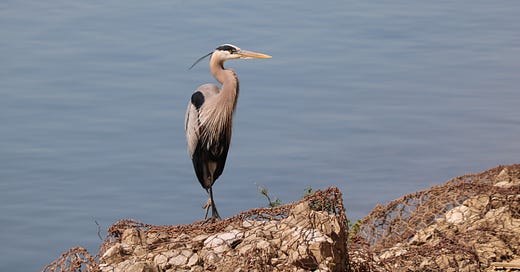I will present a generative nature poetry workshop at The Chattery next week. Participants will create four new poems. Following is an exercise you can use to create a nature poem, and it is a sample of what to expect if you are considering the workshop.
Read the poem “Invocation.” This is a list poem https://poets.org/glossary/list-poem.
Invocation Shall I speak to you of nature? I shall, but first, I must invoke the Muse. Some mornings, the smell of a freshly crushed sassafras leaf is enough. Some mornings, I strike the singing bowl. The ethereal ringing tone focuses my attention. Some mornings, I stretch in the motions of the Eight Brocade Qigong. Some mornings, I dance, but I am not Bal Shem Tov, the dancing Rabbi. Some mornings, I recite the Beauty Way song, but I am not Diné. Some mornings, I read a work by St. Francis of Assisi, "The Canticle of Brother Sun." Some mornings, I read a short poem of my own composition. I have occasionally lit a sage wand and offered smoke to the four directions. The smell of sage smoke once prompted a neighbor to ask what I was smoking, I sometimes light the sage, wave smoke to the four directions, and let them wonder. This all may persuade you that I am running about in circles with no specific direction. I remind you that these are merely ways of beginning the day, which is another way of saying "invoking the Muse."
I will offer multiple sample poems by other authors to inspire participants for each exercise. If you prefer a different nature poem for inspiration, a long list appears on the Poetry Foundation website: https://poets.org/text/nature-poems.
This link takes you to a poem by Louise Gluck about beginnings and endings: https://poets.org/poem/october-section-i.
Prompt:
Write a poem about beginnings or endings or possibly a new beginning. If you have read the examples and think, “I could write a better poem than that,” you have made a start. Write that poem now. Many religious traditions have lovely creation stories. If you wish, you can write a poem from your religious or spiritual tradition. Try making it a list poem.
What is Poetry?
While preparing the presentation, I briefly drifted off into philosophical (or possibly epistemological) territory and asked myself, What is Poetry?
The question has various answers that do not agree, but I consider poetry a form of writing that pays particular attention to rhythm, line, and sonic qualities. Some authorities believe that poems and songs precede prose in literary cultures. The following examples are only the beginning of the range of poetry worldwide.
The Epic of Gilgamesh, published on stone tablets, is an epic poem of Mesopotamia and the oldest known literary work. The Odyssey and the Iliad, attributed to Homer, were written in verse. This possibly mythical poet is also credited with a series of lesser-known works called The Homeric Hymns. The Inferno is one book in The Divine Comedy a trilogy written in Terza Rima by Dante Alighieri. Paradise Lost by John Milton is a book-length poem written in Blank Verse. Several parts of the Christian Bible were originally composed in verse. The Bhagavad Gita is a 700-verse Hindu Scripture. Many contemporary song lyrics are poems.
What about nature poetry though?
In A Little Book on Form, Robert Hass identifies the Gegorgic as the genre of the recent wave of nature poetry. The name comes from Virgil’s Georgics, a body of work extolling rural living. Hass cites Wendell Berry’s poetry and Pablo Neruda’s Cantos as examples. He lists several ecopoets including Gary Snyder.





p.s. I definitely like hearing the recorded verse, and also Hass's Little Book on Form is one of the poetry reference manuals I return to again and again.
Hi Ray-- good luck with giving the nature writing workshop. It's neat to have found you here on Substack by way of the Nature Literature group at Goodreads. I am thinking of giving this prompt a try. Best wishes for success here! Sher